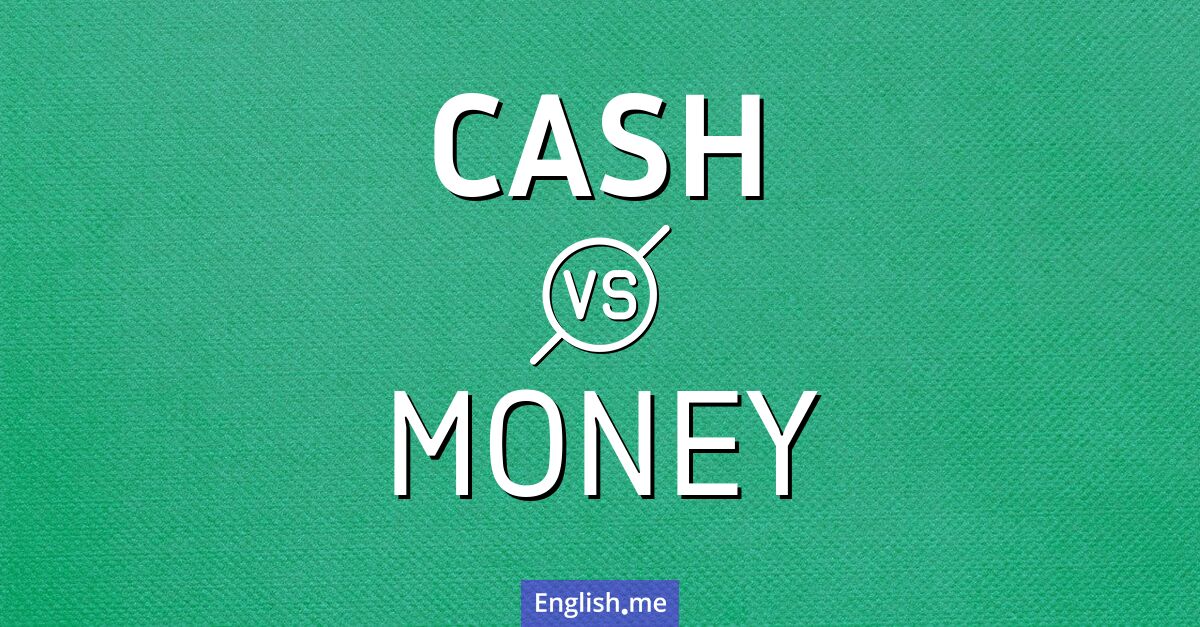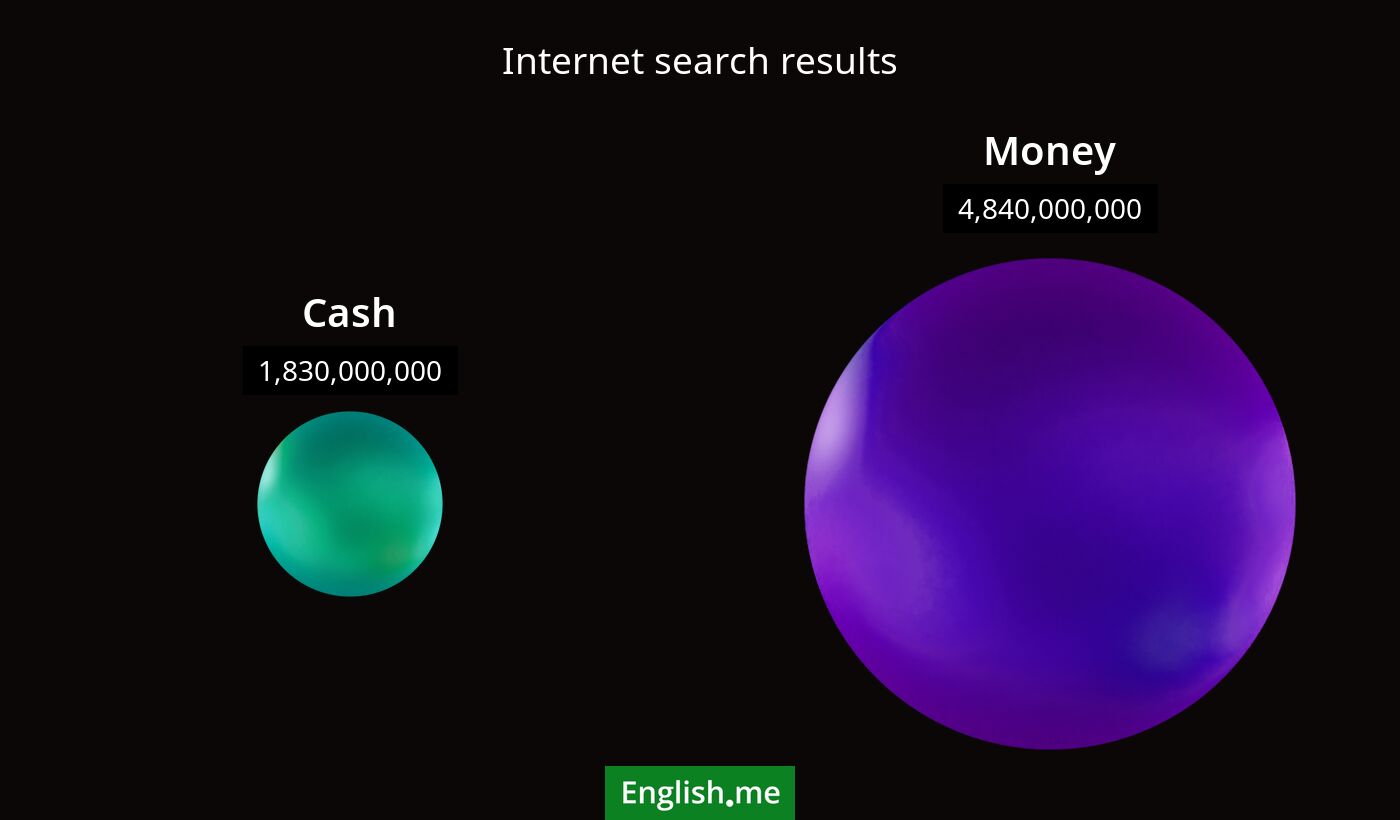"Cash" vs. "money": the language of wealth explained
Reviewed and edited by  Anwar Kareem 08/10/2024, 03:01
Anwar Kareem 08/10/2024, 03:01
English.me team member

 What is similar?
What is similar?
Both "cash" and "money" refer to financial resources or means of payment. They are used in the context of transactions, purchases, or finance, and are often used to represent wealth.
 What is different?
What is different?
"Cash" specifically refers to physical currency such as banknotes and coins, whereas "money" is a broader term that encompasses all forms of currency, including digital, electronic, and liquid assets. "Money" can refer to economic value in general, while "cash" implies tangible currency.
 Which one is more common?
Which one is more common?

 Examples of usage
Examples of usage
Cash- I paid for the groceries in cash.
- She always keeps a small amount of cash in her wallet.
- The cashier preferred cash over credit cards.
- He decided to invest his money in stocks.
- Saving money is important for future security.
- They donated a lot of money to charity.

 English
English español
español française
française italiano
italiano deutsche
deutsche 日本語
日本語 polski
polski česky
česky svenska
svenska Türkçe
Türkçe Nederlands
Nederlands